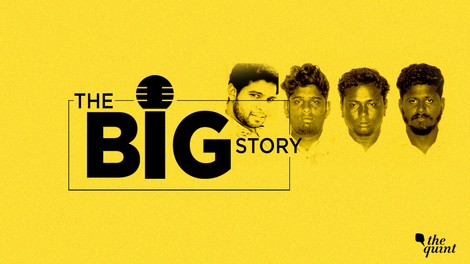Your podcast discovery platform
Curious minds select the most fascinating podcasts from around the world. Discover hand-piqd audio recommendations on your favorite topics.

piqer for: Climate and Environment Globalization and politics
Raksha Kumar is a multimedia journalist focusing on human rights, politics and social injustices. Since 2011, she has reported for The New York Times, BBC, Guardian, TIME, South China Morning Post, Foreign Policy, Scroll.in and The Hindu.
In March 2018, she was awarded the National Foundation for India Media Award for her reportage on land rights in India. In 2017, she was shortlisted for Kurt Schork Memorial Awards in International Journalism. For her work on land conflicts in India, she was awarded the Chameli Devi Award for Outstanding Media Personality in 2016.
As a reporter, her focus areas are land and forest rights of the most vulnerable communities. However, since these issues cannot be looked at in isolation, Raksha found herself increasingly reporting on armed conflict around resource extraction in places like Chhattisgarh and Kashmir.
In 2015, she wrote, shot and directed a documentary film on Rationalists in Contemporary India. It was aired by India's public broadcaster, Doordarshan. The film has been screened in 29 locations across the country until now.
The same year, Raksha was selected as a Chevening Fellow by the University of Westminster to research on Hindu Right in the UK. This helped Raksha build on her post graduate dissertation which was on Hindu Fundamentalists in India.
With a Fulbright Scholarship for Leadership Development, she went to the Columbia University in New York City to pursue a Masters in Science. As a student, she was offered the Scripps Howard Fellowship to report from Israel and the West Bank. Since 2011, Raksha has reported from 11 countries across the world.
Raksha worked as an editor at NDTV, leading English news channel in India. She was the editorial head of a two-hour prime time news show, where she lead a team of about 20 junior journalists.
A graduate of Lady Shri Ram College in New Delhi, Raksha was a dedicated student and a passionate public speaker.
India's Shocking (Largely Hidden) Sexual Assault Case
Four men have been accused of raping, sexually assaulting about 200 women in a small town in the southern state of Tamil Nadu. They taped the assault and the blackmailed the women into giving them money. The crimes came to light in February when a 19-year-old student, who was similarly assaulted, lodged a police complaint.
"The survivor took her brother into confidence after the accused blackmailed her several times. The brother in turn tracked down two of these guys, beat them up and unearthed this elaborate ploy of extorting money through blackmail."
Only after the videos of assault got viral, did the national media pay attention to these crimes."As if the video leak wasn't bad enough, the responses to the video on social media show that we are not really addressing the actual problems of rape, and are instead propagating rape culture."
This incident has brought the spotlight back to women's safety in India. Additionally, it forces Indians to think of how desensitised they have become to sexual assault. Crimes as horrific as this would have forced media attention on it, but most mainstream media picked up the story only after sensational videos were leaked. Showing such videos put the privacy and dignity of the women at stake.Stay up to date – with a newsletter from your channel on Global finds.
